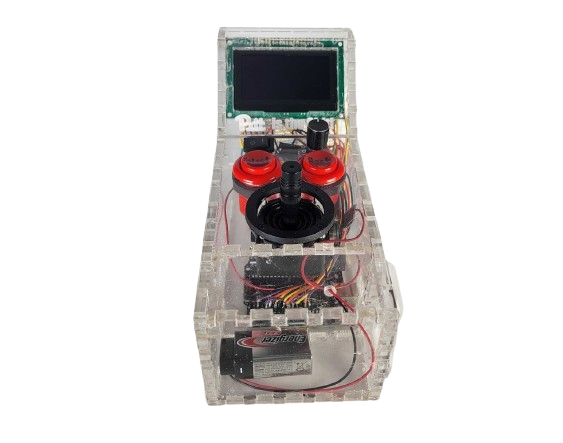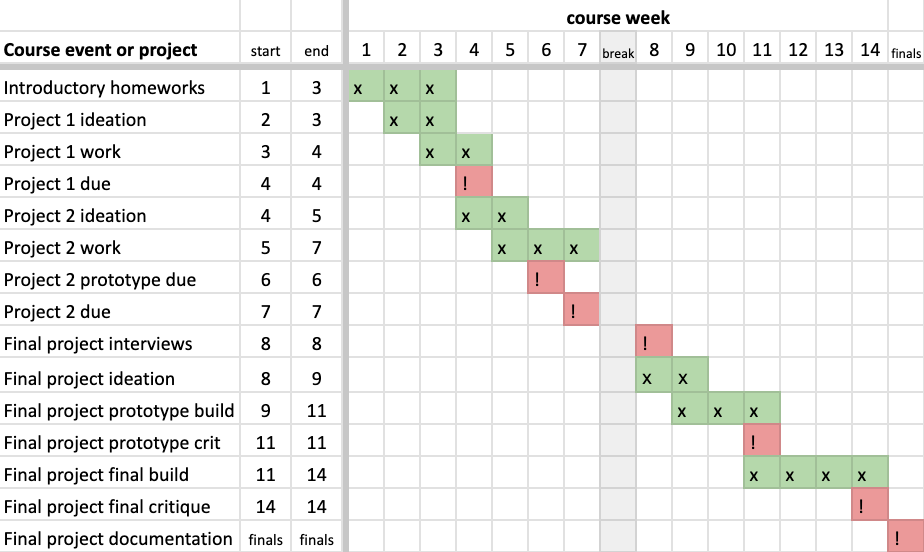Introduction to Physical Computing (60-223) is a 10-credit semester project-based course offered at Carnegie Mellon University by IDeATe.

Augmentative & Alternative Communication Device for Steve, by The Yarrows (a final project from spring 2024). Read more about the project at the students' documentation page.
Class meetings
- Mondays and Wednesdays, noon–1:50pm, room A10 in Hunt Library (IDeATe’s Physical Computing Lab)
Professor: Robert Zacharias, rzachari@andrew.cmu.education (subtract the cation)
Professor’s lab hours
- Mondays and Wednesdays, 2–3pm
- and liberally available at other times (please email for an appointment)
Teaching Assistant: Ella Sanfilippo, esanfili@andrew.cmu.education (minus the cation)
- TA lab hours TBD
Course synopsis
The first half of this practical project-based course is spent covering the basic technical skills (including electronics, programming, and hardware) needed to build simple interactive objects with embedded behavior using the Arduino microcontroller. Inputs to read information about the world include sensors such as an ultrasonic ranger, thermometer, light sensor, and human inputs like buttons and knobs. Outputs to affect the world include actuators such as motors, LED lights, speakers, and haptic feedback devices. Individual and group projects challenge students to apply their technical skills in creative ways. The class will be working with a local group of people living with disabilities who serve as design clients for the final project; students conjure and build functioning assistive devices of a practical or whimsical nature for their critique and feedback. Readings and guest speakers address topics pertaining to design for people with different abilities.
Syllabus
Course flow overview
This Gantt chart shows a week-by-week course overview. Note that red exclamation points indicate due dates or singular events, while green x’s indicate ranges during which work happens.

